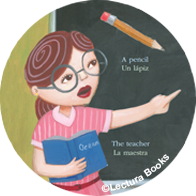Classrooms throughout the United States are reflecting an increasing collection of students from diversified backgrounds, as an estimated 11.2 million limited English proficient children are now enrolled in classes from grades K-12. With such a large segment of the school population at often widely disparate levels of English language comprehension, it has become crucial that teachers are cognizant of the many issues that they will face when working with ELLs. In order to meet these challenges, instructors should be fully apprised of the different strategies toward effective instruction of these pupils with respect to academic excellence, class surroundings, and the social and emotional components that are inherent with introducing these students into a classroom where they are at a disadvantage with communication.

No matter how fast or slow ELLs absorb and learn the information that is being imparted to them, teachers must always set high goals for their achievement, even if the students don’t feel such goals are attainable. It is the duty of the teacher to encourage them to strive for accomplishment. This is best achieved through the primary means of language development: speaking, writing, reading and listening. All four of these actions will serve to keep the ELL student fully engaged in practicing the language and will play an even greater part in their development, particularly if English is not spoken or practiced outside of the classroom. One of the most successful methods toward learning a new language is through repetition, but teachers must understand the homes and backgrounds of these children as well. They may have parents or families that are not proficient in English either; therefore, they won’t have the tools or opportunities to practice the language with parents or siblings. So speaking, writing, reading, and listening in class may be the only time they have to get into a routine of repetition in order to comprehend the finer points of their new language.
The Latino Family Literacy Project provides staff development for teachers and school staff to work with Spanish-speaking parents and children for English Language Development for strong literacy and reading skills using our Family Stories Curriculum. Age-specific programs are available starting with Infant/Toddler, Preschool, Elementary, and Middle/High. Register here for a workshop, webinar, or schedule a workshop at your district.
